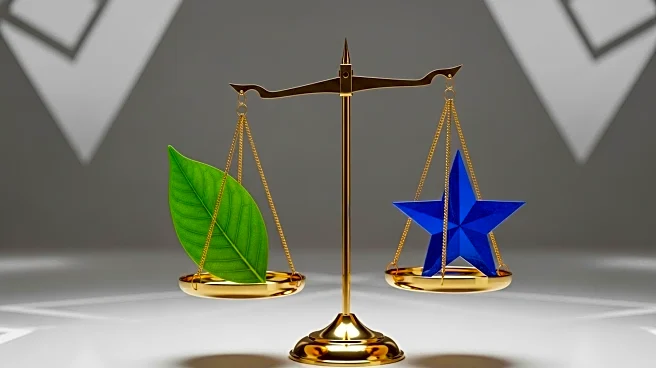What's Happening?
Brazilian President Luiz Inácio Lula da Silva has formally requested U.S. President Donald Trump to lift a 40% tariff on Brazilian imports. This request was made during a phone conversation between the two leaders, where they also exchanged phone numbers and discussed the upcoming climate summit in Belem. The tariffs, initially imposed by the Trump administration in July, were justified as a response to Brazil's internal policies and the criminal prosecution of former President Jair Bolsonaro. Bolsonaro was recently convicted of attempting a coup following his electoral defeat in 2022 and sentenced to over 27 years in prison. Lula emphasized that Brazil is one of the few G20 countries with which the U.S. maintains a trade surplus, highlighting the economic significance of the bilateral relationship.
Why It's Important?
The imposition of tariffs on Brazilian imports by the Trump administration has significant implications for U.S.-Brazil trade relations. These tariffs could potentially strain economic ties between the two nations, affecting industries reliant on Brazilian goods. For Brazil, the tariffs represent a substantial economic challenge, particularly in light of the country's current political and economic climate. The request from President Lula underscores the importance of maintaining favorable trade conditions to support economic stability and growth. For the U.S., lifting the tariffs could enhance diplomatic relations and foster cooperation on global issues such as climate change, as indicated by Lula's invitation to President Trump to attend the climate summit.
What's Next?
The next steps involve potential diplomatic negotiations between the U.S. and Brazil to address the tariff issue. President Lula has expressed willingness to travel to Washington to continue discussions with President Trump, building on their previous meeting at the United Nations General Assembly. The outcome of these negotiations could influence future trade policies and economic strategies between the two countries. Additionally, the response from the White House, which has yet to comment, will be crucial in determining the direction of U.S.-Brazil relations.










